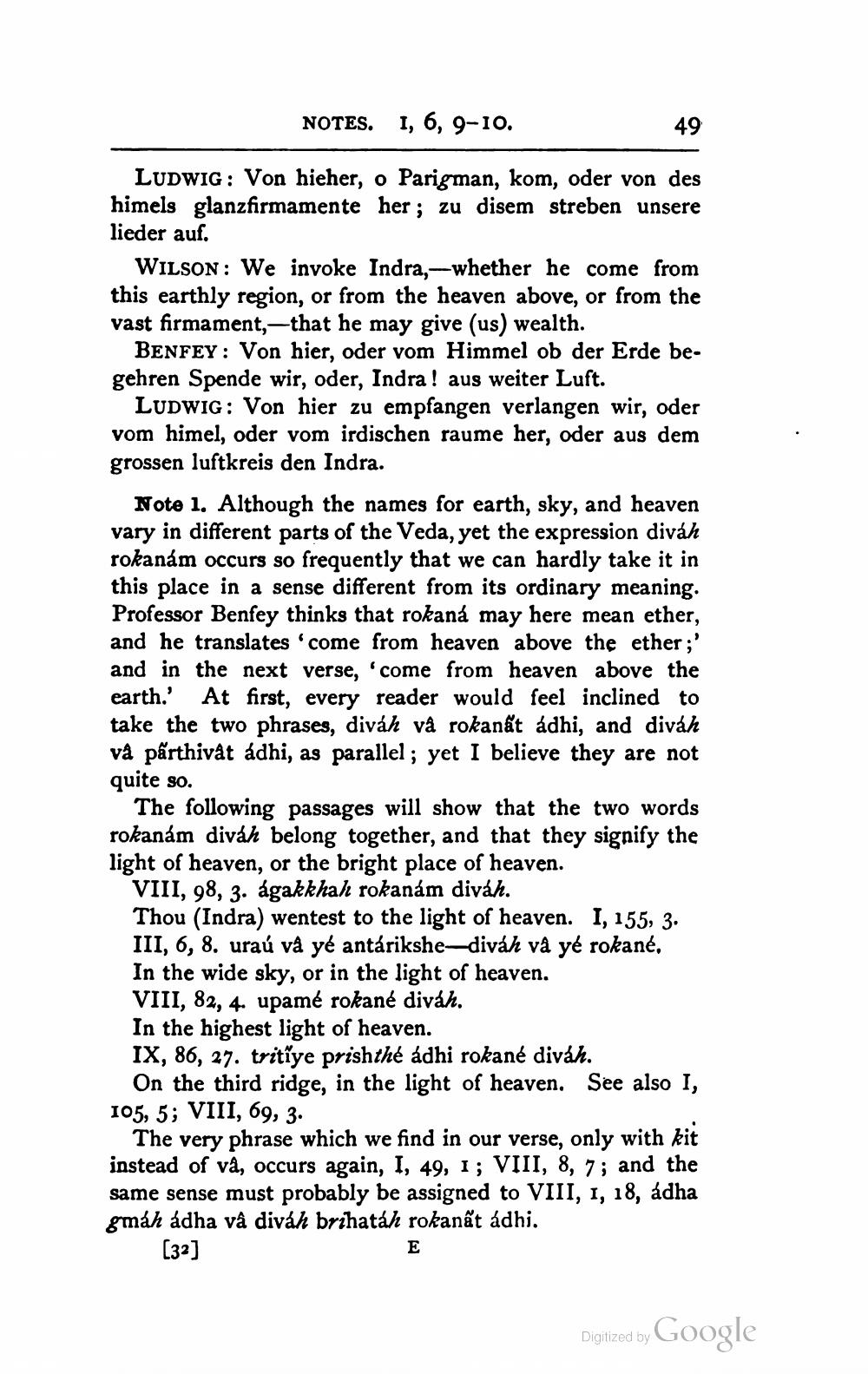________________
NOTES. 1, 6, 9-10.
LUDWIG: Von hieher, o Parigman, kom, oder von des himels glanzfirmamente her; zu disem streben unsere lieder auf.
WILSON: We invoke Indra, whether he come from this earthly region, or from the heaven above, or from the vast firmament,—that he may give (us) wealth.
BENFEY: Von hier, oder vom Himmel ob der Erde begehren Spende wir, oder, Indra! aus weiter Luft.
LUDWIG: Von hier zu empfangen verlangen wir, oder vom himel, oder vom irdischen raume her, oder aus dem grossen luftkreis den Indra.
Note 1. Although the names for earth, sky, and heaven vary in different parts of the Veda, yet the expression diváh rokanám occurs so frequently that we can hardly take it in this place in a sense different from its ordinary meaning. Professor Benfey thinks that rokaná may here mean ether, and he translates come from heaven above the ether;' and in the next verse, "come from heaven above the earth. At first, every reader would feel inclined to take the two phrases, diváh và rokanât adhi, and diváh vå párthivât ádhi, as parallel; yet I believe they are not quite so.
The following passages will show that the two words rokanám diváh belong together, and that they signify the light of heaven, or the bright place of heaven. VIII, 98, 3. ágakkhah rokanám divah. Thou (Indra) wentest to the light of heaven. 1, 155, 3. III, 6, 8, trau và vẻ antarikshe<divải và vẻ rolanẻ. In the wide sky, or in the light of heaven. VIII, 82, 4. upamé rokané diváh. In the highest light of heaven. IX, 86, 27. tritiye prishthé ádhi rokané diváh. On the third ridge, in the light of heaven. See also I, 105, 5; VIII, 69, 3.
The very phrase which we find in our verse, only with kit instead of vå, occurs again, I, 49, I; VIII, 8, 7; and the same sense must probably be assigned to VIII, 1, 18, ádha gmáh ádha và divah brihatáh rokanât adhi.
[32]
Digitized by Google




